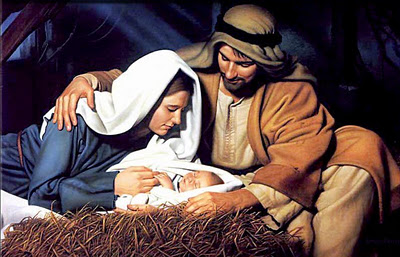For centuries, questions of personal opinion, particularly those regarding special days, have continued to arise among followers of Christ. The question of Christmas is one of them.
“Christmas” which means “Christ’s Mass”, is an annual commemoration of the birth of Jesus Christ. Billions of people around the world celebrate it, while many others choose not to. This would be perfectly okay, except for the fact that the majority of those who do not celebrate it hold the view that it is wrong to celebrate it, and that those who do are actually sinning by doing so.
The most popular argument against Christmas is the date. The Bible did not give Jesus’ birth date, and many are now aware that Jesus could not possibly have been born on December 25th- it has always snowed in December in that region, and it is unlikely that the shepherds were outside in the snow watching their sheep in the freezing cold. So what exactly is the point of Christmas Day?
Oh Come, Let Us Ignore Him
It is no news either that Christmas festivities in many regions over the centuries have had little or nothing to do with Christ Himself. During the winter, December precisely, many pagan festivals were celebrated, notably the feast of the Sun God (Sol) on December 25th. History shows that pagans who converted to Christianity simply continued to feast on December 25th in honour of the Son of God. While there is no evidence that a religious celebration of Sol on that day antedated the celebration of Christmas, it is obvious that there are many Christmas “traditions” that have no foundation in Scripture and were simply incorporated into Christmas from those cultures.
Worse still, Christmas celebrations have often featured raucous, drunken carnival-like merriment. As a result, various Protestant groups (most notably the Puritans) banned the celebration on more than one occasion, due to concerns that it was too pagan or unbiblical. Indeed, many aspects of the celebration retain elements of these pagan festivals, such as the Yule log from the Pagan Scandinavian festival of Yule, and gift giving from Saturnalia. Till today, in English, Yule is still synonymous with Christmas (think Yuletide), gift giving still carried over from the festival in worship of Saturn, and even Koleda, an ancient pre-Christian Slavic winter ritual, was later incorporated into Christmas in the form of Christmas carols.
The bottom line for Christians who reject Christmas is that Christmas has been many things over the course of history, from a copy of pagan festivals in days of yore, to a mere commercial holiday in recent times, but it has not always been about Christ, and neither is He always the centre even today.
Of Special Days and Diets
Some others believe that it is wrong to celebrate birthdays at all, whether of people or of Christ. After all, the only two birthdays noted in the Bible were of unbelievers, and they were also gory. Potiphar’s birthday saw one of his former employees being executed, and Herod’s birthday was also the occasion for the murder of John the Baptist. No birthday celebrations were mentioned among believers.
Still, many Christians insist they are not celebrating Christ’s birthday, but the fact of His birth. “He was born, we are glad that He was born, we celebrate His birth, because it signalled new beginnings for mankind’s relationship with God,” Amos B says.
Anwuli agrees. “It’s not important what people used certain days for in the past. All days were made by God and we have chosen this one to honour Christ.”
What does all of this mean? Let’s consider another area of conflict. In the beginning, God gave human beings fruit and grain for food. He only instructed them to begin eating meat after The Flood, due to scarcity. So, one can infer that the BEST foods for humans remain fruit and grain. In fact, we can go further to say that since there is no longer scarcity, anyone who really wants to take care of his body as God’s temple should embrace the vegetarian diet. It’s obvious that this diet was God’s original plan, isn’t it?
This isn’t just a made up line of argument. Believers in the time of the apostles actually had huge disagreements about this, and vegetarians looked down on meat eaters, they being holier in their own eyes. And guess what? They also had disagreements about people considering some days to be special. How did Apostle Paul deal with this by the Holy Spirit’s leading?
Be Fully Persuaded
Paul simply said in Romans 14 that Christians should not criticise other Christians. “Do not argue about opinions,” he says. “One person believes it is right to eat all kinds of food, but another believes it is right to eat only vegetables…Some think that one day is more sacred than another, and others think that every day is the same. Let all be sure in their own mind.”
He also says, “The person who knows that it is right to eat any kind of food must not reject the one who eats only vegetables. And the person who eats only vegetables must not think that the one who eats all foods is wrong.”
What was the rationale behind this and how does it relate to December 25th? He explains further. “The one who observes the day observes it in honour of the Lord.”
Accomodating the convictions of others is something that has proven increasingly difficult for Christians to do. After all, if my conviction is right, then your opposite conviction MUST be wrong. It’s simple logic; we can’t BOTH be right.
Fortunately, a careful study of Romans 14 shows that God has not called us to proving ourselves right and others wrong. We are called to serve God and love each other. If the Bible has not stated that something is a sin, then it is a matter of opinion; a “disputable matter.” Nowhere is imposing our opinions on other Christians encouraged. Rather, it is discouraged; “You cannot judge another person’s servant. The Master decides if the servant is doing well or not.” (Romans 14:4)
So if you choose to honour the Lord on Christmas Day, it is for His glory. And if you choose not to, refrain from judgement of those who do. It is by far more important to God to love your neighbour as yourself. Let that be what consumes you this season.



